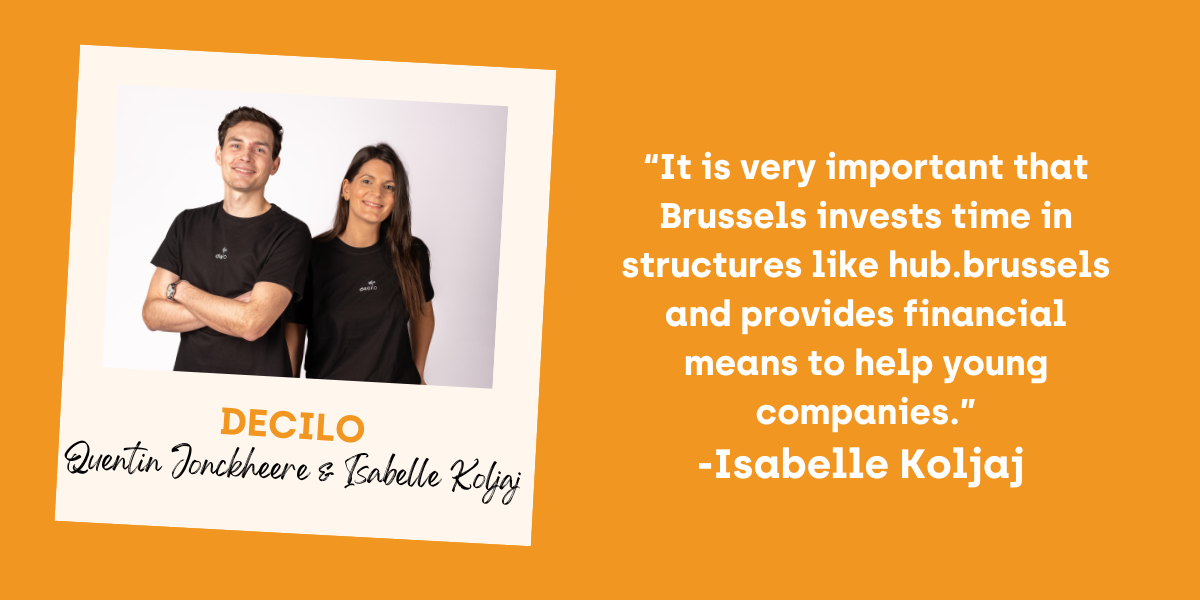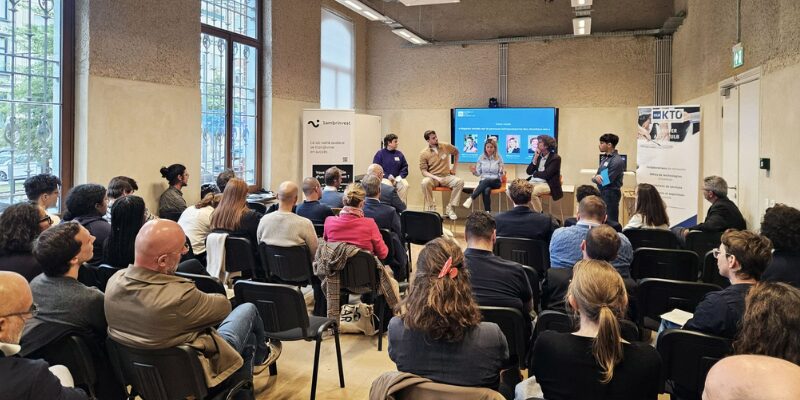Innovation in the field of health prevention has a bright future, and we are currently at a turning point where both businesses and public authorities have a crucial role to play, in Brussels as well as throughout Europe. This is the summary of the “Prevention & HealthTech” study conducted by Deloitte for lifetech.brussels and published last November.
Prevention and Innovation
In the healthcare field, prevention encompasses all devices and interventions aimed at reducing or preventing the onset (primary prevention), the spread and progression (secondary prevention), or the worsening (tertiary prevention) of health problems, whatever they may be. Prevention stretches over time, both before and after the occurrence of diseases or disabilities.
When you add the terms “digital” or “healthtech,” it means we’re talking about connected devices that generally aim to facilitate access, reading, or initial steps in prevention for users. For example: data collection and analysis to detect health issues using connected bracelets; coaching and monitoring of treatments or lifestyles for chronic diseases; telemonitoring devices for maintaining the independence of the elderly, and so on.
Given that life expectancy is generally increasing today, but at the same time, the quality of life at advanced ages is declining, it’s reasonable to question prevention policies, innovations in the sector, and the existing or yet-to-be-created opportunities.
A Theoretical Consensus on Prevention
The first observation from the study is a general consensus on prevention. Indeed, the trend among the population, as well as within public and government institutions, is to emphasize and promote prevention: “care rather than cure” because it proves positive in the short, medium, or long term. A healthier population has better morale, is more motivated to engage in other causes, and is also cheaper in healthcare while being more productive at work. In contrast, curative measures consume a lot of energy and generate waste.
Although total healthcare expenses will probably not decrease in the future, there is every reason to believe that a shift in the cost of care and treatment toward improving health and well-being will have an overall favorable impact. From an economic, environmental, political, and even social perspective, prevention enjoys unanimous support.
Timid Practical Applications
Despite the enthusiasm for prevention and the obvious prevalence of chronic diseases and lifestyle-related issues, even in countries with better overall health like Sweden, it is observed on the ground that the healthcare systems studied remain hesitant to invest. In Belgium, only 1.7% of the total healthcare budget was allocated to prevention in 2019, compared to the European average of 2.8% and far behind many of its neighbors.
Two main obstacles are identified in the study. First, the measurement of the direct or indirect impact of investments in prevention, which remains difficult and approximate, does not motivate public authorities to invest. Second, the legislative and financial frameworks appear to be very restrictive and inflexible. They make it difficult for businesses to access healthcare authorities, regulatory bodies, and sources of funding.
Investments are necessarily significant at the outset, without a precise prediction of their effects or when they will occur. Currently, companies suffer from the gap between healthcare sector funding (fee-for-service) and prevention (value-based), even though many programs and incentives exist and public structures offer support from concept to implementation (coaching, training, grants, subsidies, etc.). The solution proposed in the study is simplifying access to these processes: moving from a system where startups must seek help to a system where help is proactively offered.
Developing a Culture of Prevention
The study proposes avenues for the establishment and development of innovative prevention solutions, summarized as “developing a culture of prevention.”
To achieve this, a change in perspective is necessary, focusing on a long-term vision rather than a short-term one. Investing in prevention means accepting that our actions today will benefit the next generation. For example, Sweden has made prevention a cornerstone of its national health strategy and has higher spending on prevention than the European average. In this country, the population readily adopts digital solutions and is curious about technological innovations.
At the same time, national infrastructure has been developed to provide broad access to data, interoperability, and usability on a national scale. When comparing with Belgium, a similar population profile is observed. What then hinders the implementation of a more ambitious prevention policy in our country?
Bringing Together Stakeholders
It is crucial for companies to surround themselves with stakeholders who believe in their project and what it brings. Building connections with public or private, commercial or administrative partners to leverage their network and expertise is essential. It is then up to actors like lifetech.brussels to “connect” the ecosystem and establish acceleration or incubation programs. The goal here is to create close relationships between investors, large companies, regional resources, and innovative startups.
Showcasing Results
The study’s final recommendation emphasizes the necessity of demonstration: proving the utility, relevance, and ease of use. The authors point out that companies have difficulty highlighting the added value of their solution to opinion leaders and the general public. To do this, they need to rely on practitioners and opinion leaders who can test and echo the impacts and benefits of the solutions. Testing and practical implementation, even on a small scale, are essential in the adoption and valorization of innovations. It is therefore the responsibility of authorities to facilitate this, for example, by providing infrastructure and platforms. At the same time, it is up to companies to solicit and stimulate actions that raise public awareness of existing or future solutions.
Establishing Success Factors
“Success comes when companies are part of a high-performance network with complementary skills and experiences, prioritizing value and customer experience.”
This quote summarizes what innovative companies can rely on for success.
- In the Research and development stage, it means turning to public funding, integrating accelerators, and surrounding themselves with a team that is as talented as it is motivated.
- Before entering the market, they can rely on support programs deployed by authorities, as well as on commercial partners and their expert advice to establish a pricing model based on the value of their solution.
- Assuming that information on regulatory frameworks is easily accessible and understandable, companies quickly encounter early adopters who will promote their solution, act as advocates, and facilitate their dissemination.
Taking the Leap
Actions related to prevention and in favor of prevention require that prevention and its benefits make sense in the values of all those involved. This is why it is crucial to raise awareness, demonstrate, bring together, on a societal scale.
For both public authorities and companies, the study’s recommendations align: working in synergy and not forming two blocks that only meet for administrative difficulties, project calls, and funding applications. It is time to work together on a larger scale because the forces at play are complementary, and most of the challenges faced by companies are related to the gap between them and the administration.
“The success of prevention depends on intersectoral collaboration among a diverse range of medical and non-medical actors.”
You can read the detailed study here: https://lifetech.brussels/en/publications/
The future of prevention is a broad societal topic that lifetech.brussels will address on November 21 and 22 during the Prevention Days.
The Prevention Days are an initiative by the cluster to bring together financial partners, innovators, and healthcare professionals to build the health prevention of tomorrow. Find more details about the event here: https://lifetech.brussels/en/events/prevention-days/



